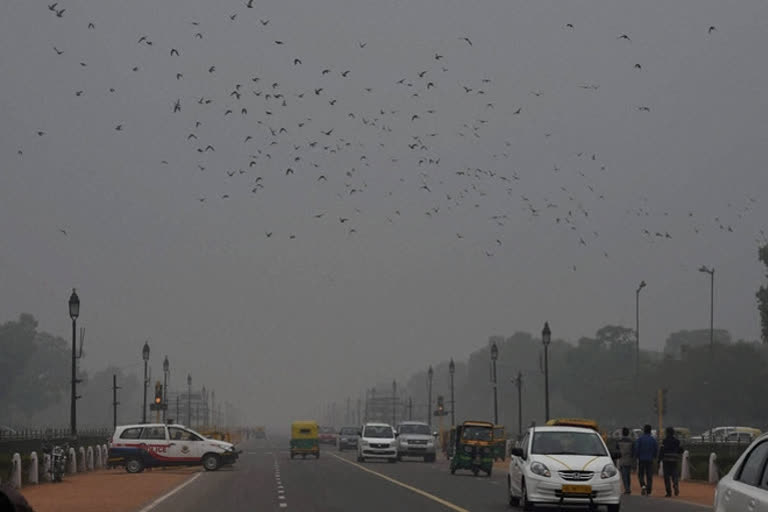Hyderabad: The statistical analysis that the air quality in the country is declining and up to one lakh people are suffering from respiratory diseases every day has come as a shock to many.
Life-giving air is not only turning poisonous and disease-prone but also becoming a cause of cutting life short. The latest ‘EPIC’ study of the University of Chicago concludes that air pollution is cutting the life expectancy of the public internationally by nearly two years. Domestically, the life expectancy of citizens is declining by an average of 5.2 years, while in North India the loss is said to be up to ten years.
The fact that in cities like Lucknow, the accumulation of microscopic dust particles in the air is more than 11 times the range prescribed by the World Health Organization, is a direct indication of the severity of the crisis. Normal breathing of people living in places like North Kolkata is inflicting on them the pollution of smoking 22 cigarettes a day. The air quality standards in Jind, Baghpat, Ghaziabad, Moradabad, Sirsa and Noida are worse than Delhi, which is famous as the pollution capital.
The analysis that the air pollution is detrimental to the living standards of 66 crore Indians and the subsequent declaration of the Indian Council of Medical Research (ICMR) that air pollution is responsible for one in every eight deaths in the country support the results of the Chicago study that there has been no improvement in the situation till today. The finding that air pollution in India has been going on for nearly two decades - further identifies the primary source of increased incidence of asthma cases in infants and paralysis and lung cancers in adults.
According to World Health Organization standards, the fine dust particles in every cubic meter of air should not exceed ten micrograms. Pollution control boards are the unforgivable culprits for their incompetent administration of pollution check and monitoring that resulted in turning more than a third of the country's cities and towns into 'gas chambers'.
Read: Air pollution reduces Indian's life expectancy by 5.2 years: Study
According to the Air Quality Index, the maximum threat is to four countries in South Asia, with India being the second most polluted country in the world after Bangladesh.
We should emulate the multi-pronged attack of neighbouring China on air pollution. It banned the construction of new coal-based industrial plants and restricted pollution emissions from the existing ones. Some steel mills were closed and vehicular traffic was regulated. Reforestation in northern China, to inhale 25 tons of carbon dioxide annually and release 60 kilograms of oxygen per day, has significantly improved the air quality and checked pollution there.
However, the condition here is quite the opposite. In an effort to correct the organizational laxity of the previous governments, the new 'National Clean Air Plan' proposed by the Modi government has not yet taken off. The promotion of electric vehicles to replace the oil-driven vehicles has not been encouraging.
The government's priorities must change with the awareness that environmental protection efforts and air pollution deaths are inter-linked. The active support of the people should also be mobilised. If social afforestation is undertaken in a big way, offices and public settlements are brought closer, industrial and vehicular pollution is strictly checked, acts such as phased introduction of electric transport system, and extensive production of solar energy are implemented, the air quality will improve ensuring healthy life to the nation.



